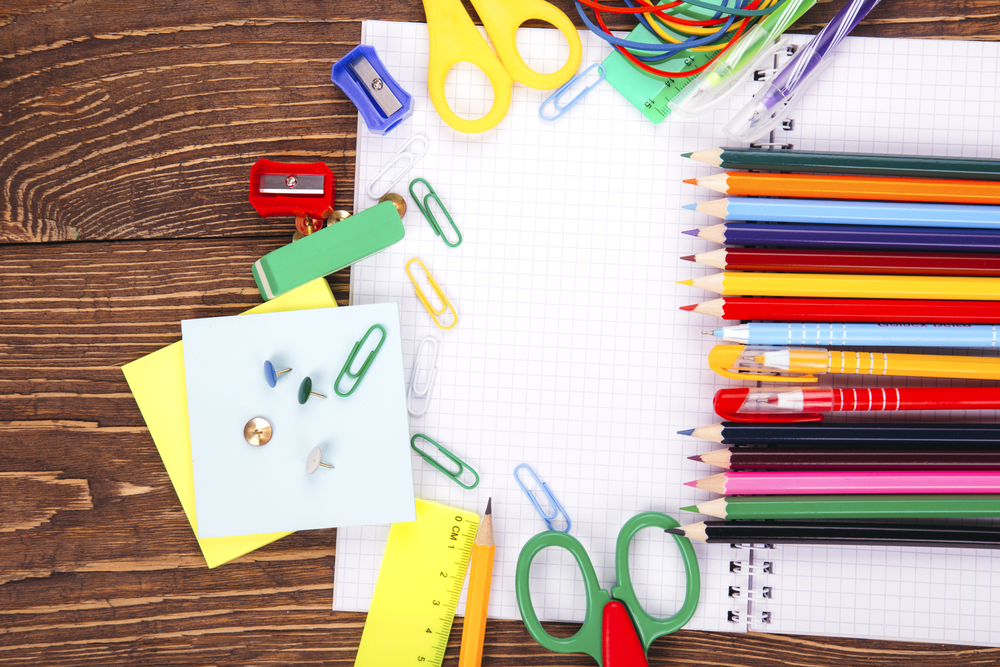Science worksheets activities for Ages 6-9
17 filtered results
-
From - To
Discover engaging science worksheets designed for children ages 6-9 that foster curiosity and understanding of the world around them. Our interactive activities cover a variety of captivating topics, from animals and plants to weather and space. Each worksheet encourages hands-on learning, critical thinking, and exploration, helping young learners grasp essential scientific concepts in a fun, approachable way. Perfect for classroom use or at-home learning, these printable resources are easy to integrate into any curriculum. Ignite a passion for science in your child today with our thoughtfully crafted worksheets that make learning enjoyable and effective!


Animals and Plants: Assessment 2 Worksheet


Animals and Plants: Assessment 1 Worksheet
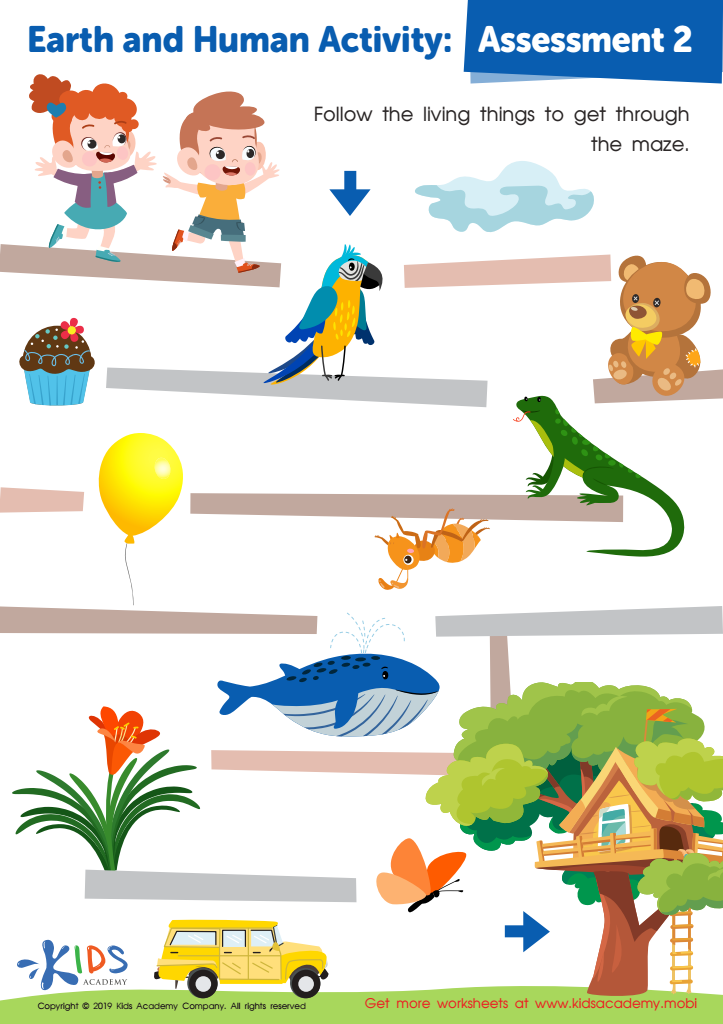

Earth and Human Activity: Assessment 2 Worksheet
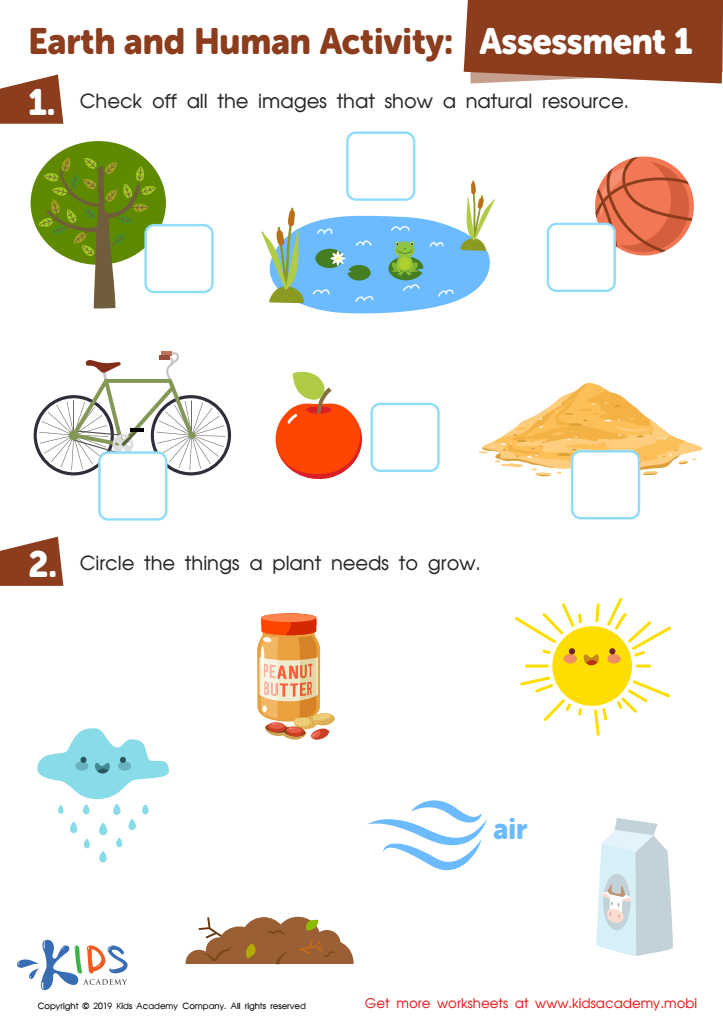

Earth and Human Activity: Assessment 1 Worksheet
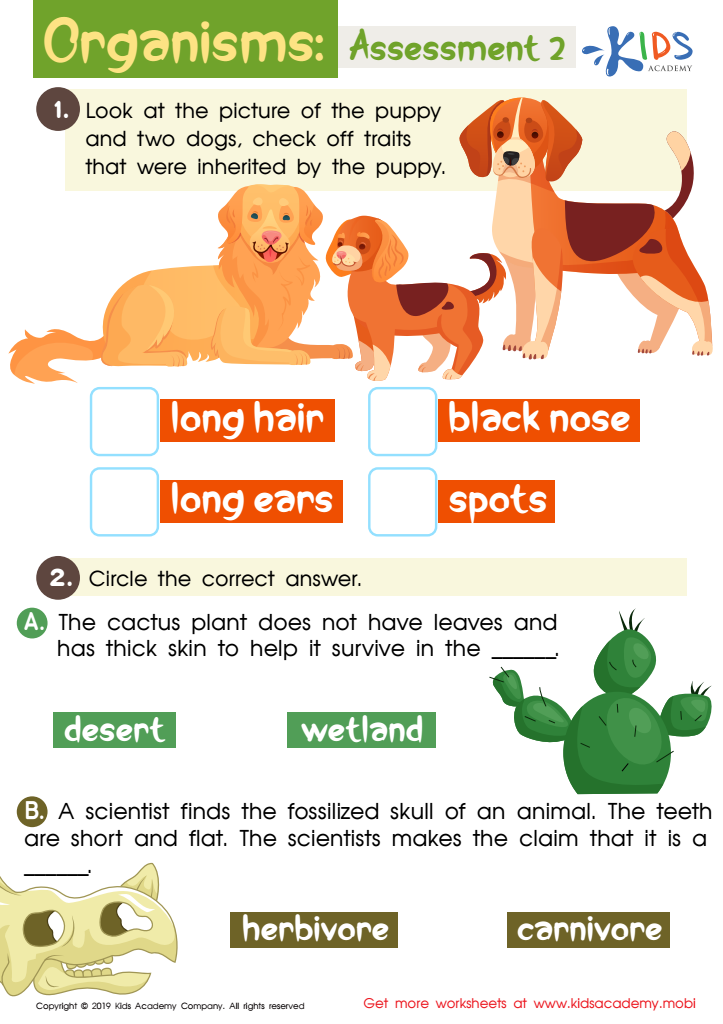

Organisms: Assessment 2 Worksheet
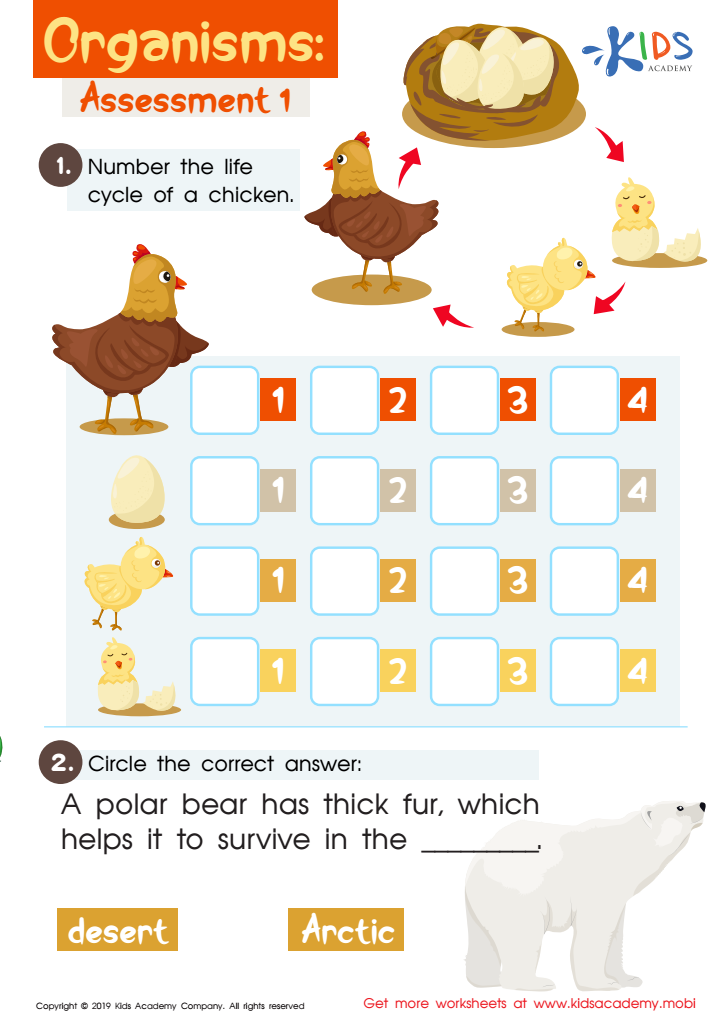

Organisms: Assessment 1 Worksheet


Ecosystems: Assessment 2 Worksheet


Ecosystems: Assessment 1 Worksheet


Space: Assessment 2 Worksheet


Space: Assessment 1 Worksheet
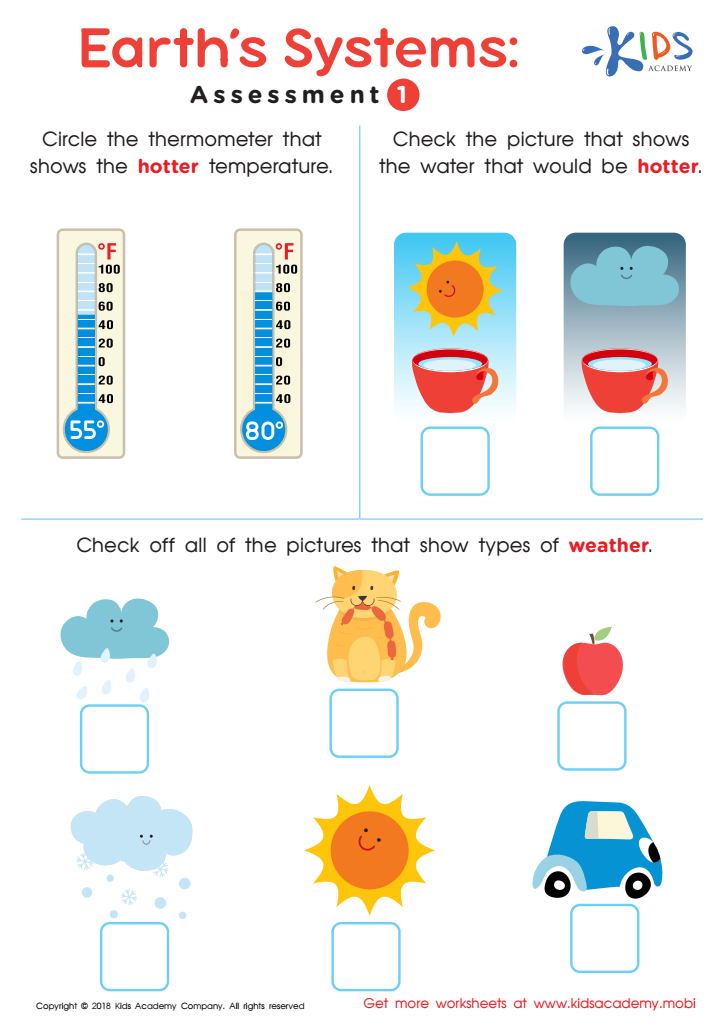

Earth's Systems: Assessment 1


Light and Sound: Assessment 2 Worksheet
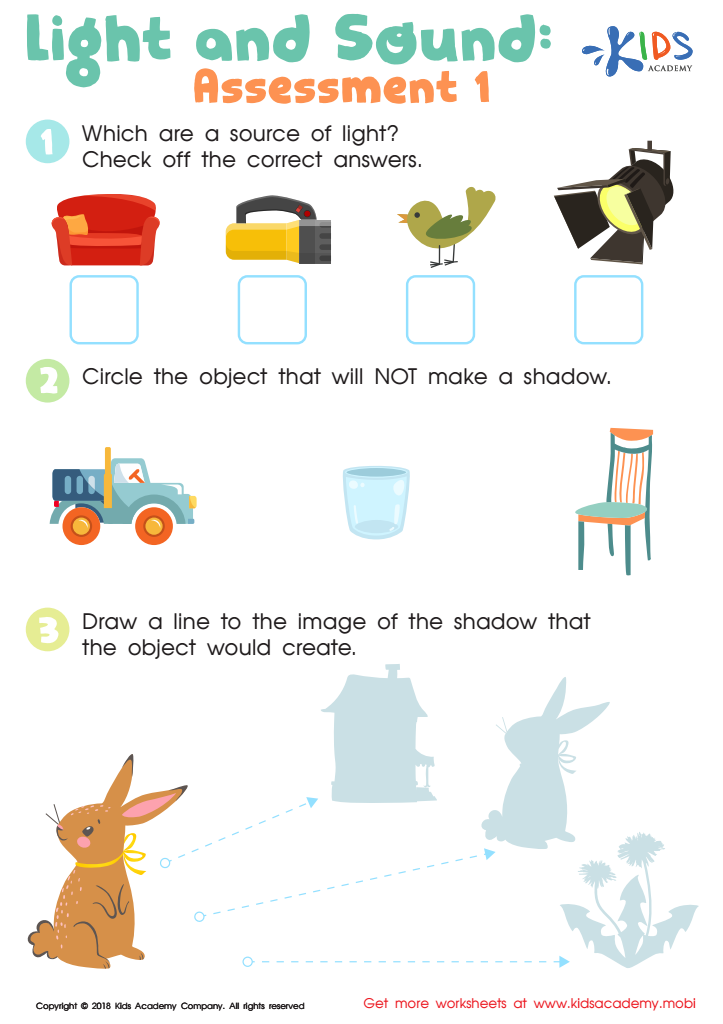

Light and Sound: Assessment 1 Worksheet
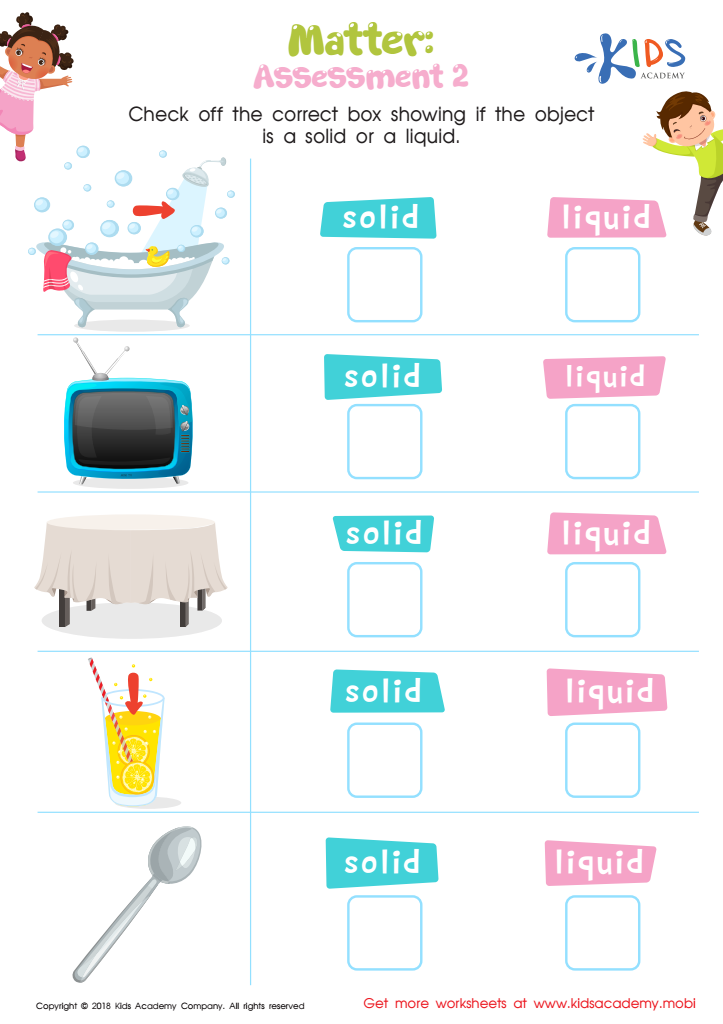

Matter: Assessment 2 Worksheet


Matter: Assessment 1 Worksheet
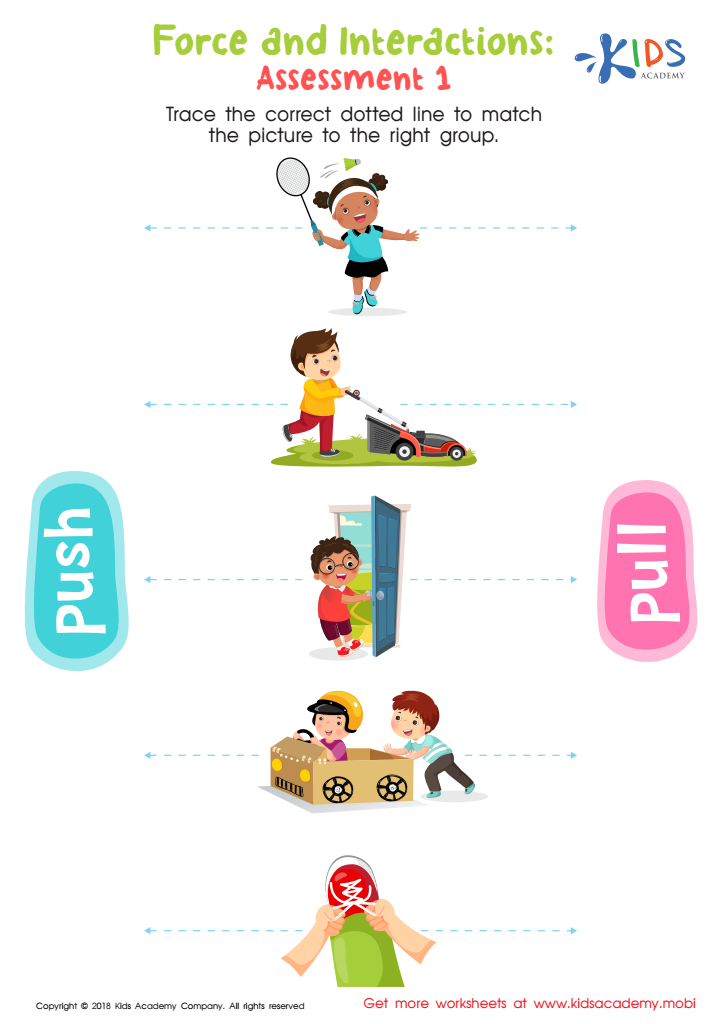

Force and Interactions: Assessment 2 Worksheet


Force and Interactions: Assessment 1 Worksheet
Encouraging science activities for children aged 6-9 is crucial for their holistic development. At this stage, children are naturally curious, often asking questions about how the world works. Engaging them in science fosters critical thinking and problem-solving skills, enabling them to explore and understand complex concepts in a hands-on manner.
Science activities can stimulate a child's imagination and curiosity, laying the groundwork for a lifelong interest in learning. These activities also promote collaboration and communication, as children often work in groups, sharing ideas and working through challenges together. This helps to develop essential social skills, including teamwork and negotiation.
Furthermore, early exposure to science helps combat stereotypes associated with STEM fields, encouraging all children, regardless of gender or background, to explore their interests. These foundational experiences can boost confidence in their abilities, leading to greater academic success in the future.
Incorporating science activities into education cultivates informed citizens capable of making decisions based on scientific understanding. Ultimately, fostering a love for science at an early age shapes inquisitive individuals equipped to tackle the challenges of tomorrow, making it vital for parents and teachers to prioritize these activities.

 Assign to My Students
Assign to My Students









